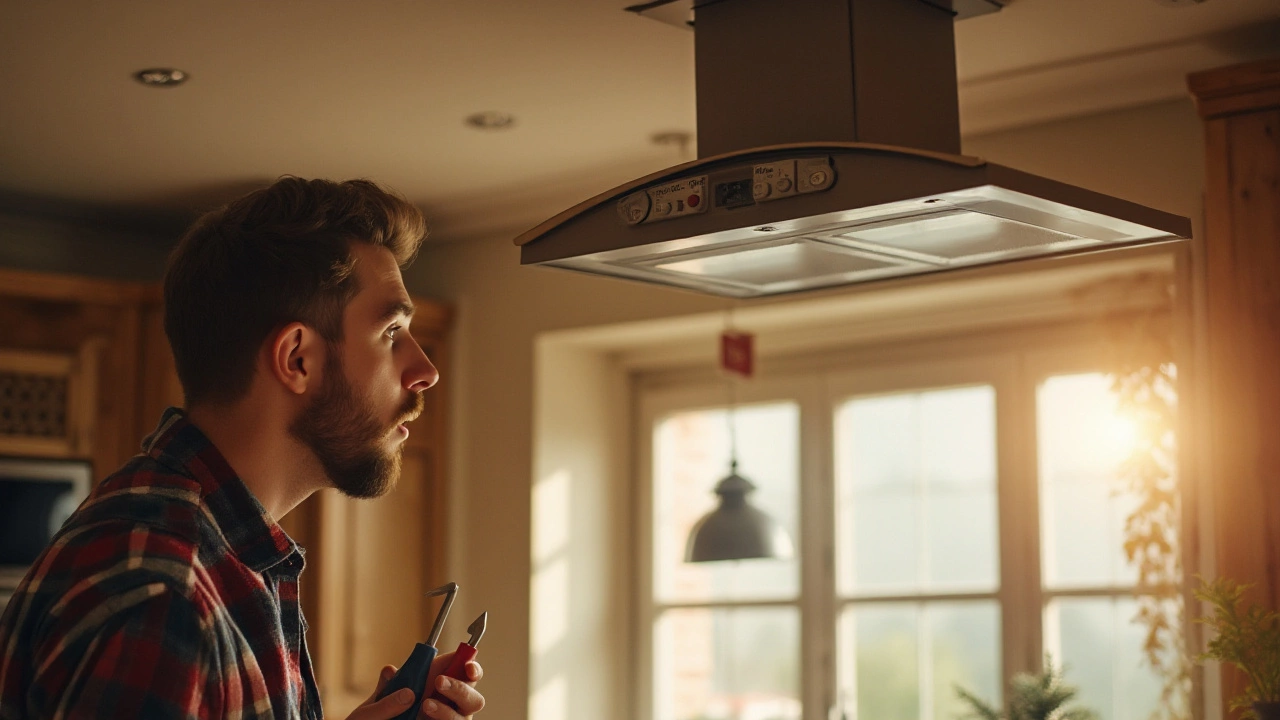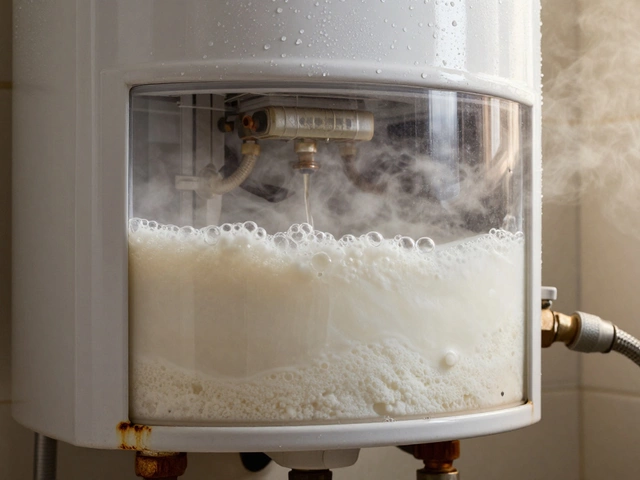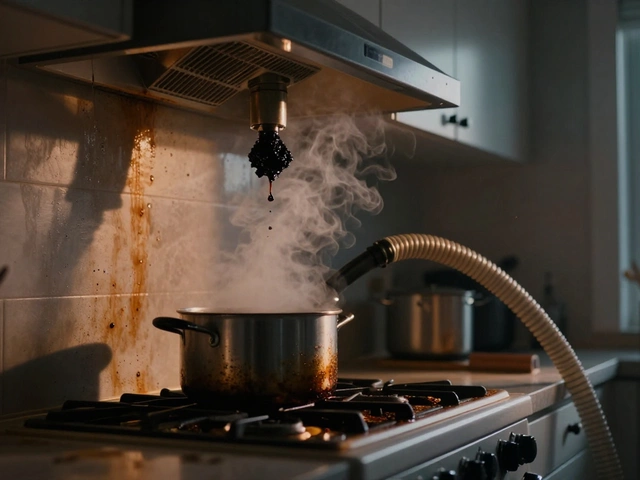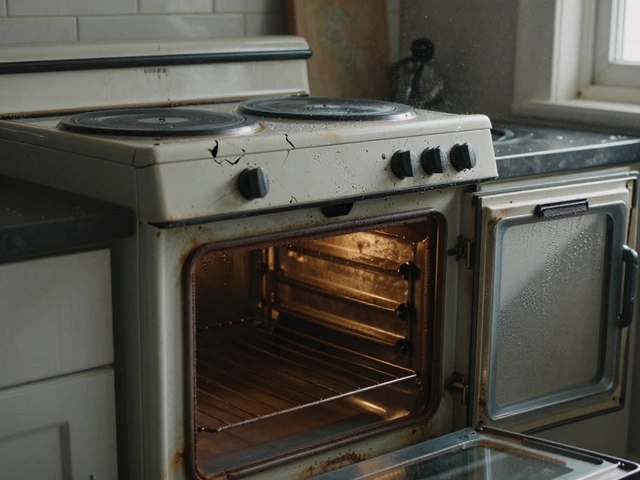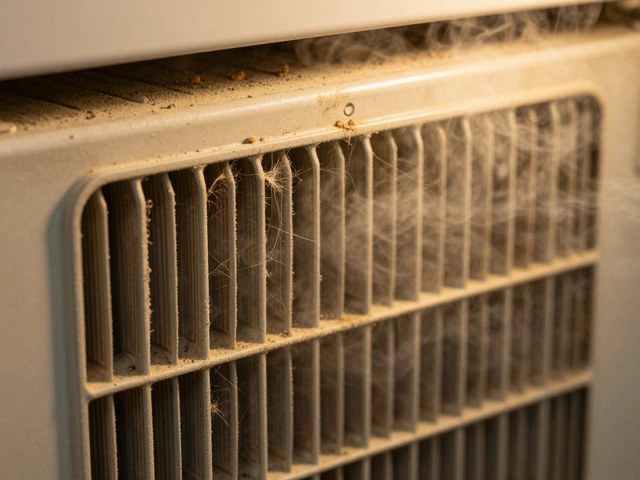Exhaust fans play a vital role in keeping our living spaces fresh and free from unwanted odors and moisture. However, like any other appliance, they are not immune to wear and tear. Before considering a replacement, it's often worth investigating whether a simple repair can bring your exhaust fan back to life.
This article delves into the typical problems you might encounter with exhaust fans, easy fixes you can attempt at home, and signs indicating it's time to call in a professional. It also offers handy tips on maintaining your fan to ensure a long and efficient life. Understanding these elements can save you time, money, and the hassle of a full replacement.
- Understanding Exhaust Fan Issues
- Simple DIY Fixes
- When to Call a Professional
- Maintenance Tips for Longevity
Understanding Exhaust Fan Issues
Exhaust fans are an essential part of household ventilation systems, and understanding the common problems they face can help in diagnosing issues quickly. One frequent problem is strange noises. If an exhaust fan begins to emit a rattling or grinding sound, it could be due to loose screws or debris caught in the fan blades. Another typical issue is a decrease in airflow, which might suggest a blockage in the duct or a dirty fan blade that needs cleaning.
It's not uncommon for the fans to stop working altogether. This can often be traced back to a motor failure or electrical issue, such as a blown fuse. Debris and dust accumulation are significant enemies of exhaust fans, causing overheating and potentially leading to parts wearing down prematurely. Keeping an eye on consistent performance indicators like speed and sound can be a valuable warning sign for potential repairs.
"Regular maintenance is key to extending the life of your home appliances," noted James Bennet, a home maintenance expert.
Issues can also stem from improper installation, where the fan was not aligned correctly, causing it to wobble when in use. In some cases, an undersized fan trying to ventilate a large space can struggle, leading to wear and tear. It's crucial to ensure the fan is appropriately matched to the room size for optimal performance.
Another factor to consider is the odor. If you notice a burning smell, it could potentially be a wiring issue. Checking the wiring connections and ensuring they are intact can prevent dangerous situations like electrical fires. In some homes, old exhaust fans might not comply with current electrical standards, posing an efficiency and safety concern that is best addressed by consulting a professional.
People often overlook the significance of home maintenance and regular checkups. Spotting issues early can prevent significant damage and extend the life of your exhaust fan. The longevity of these fans does not just rely on how often they are used but also on how well they are maintained. Make a practice of cleaning the blades regularly and ensuring the vent is free of obstructions to promote a healthier indoor environment, enhance the fan’s efficiency, and save energy.
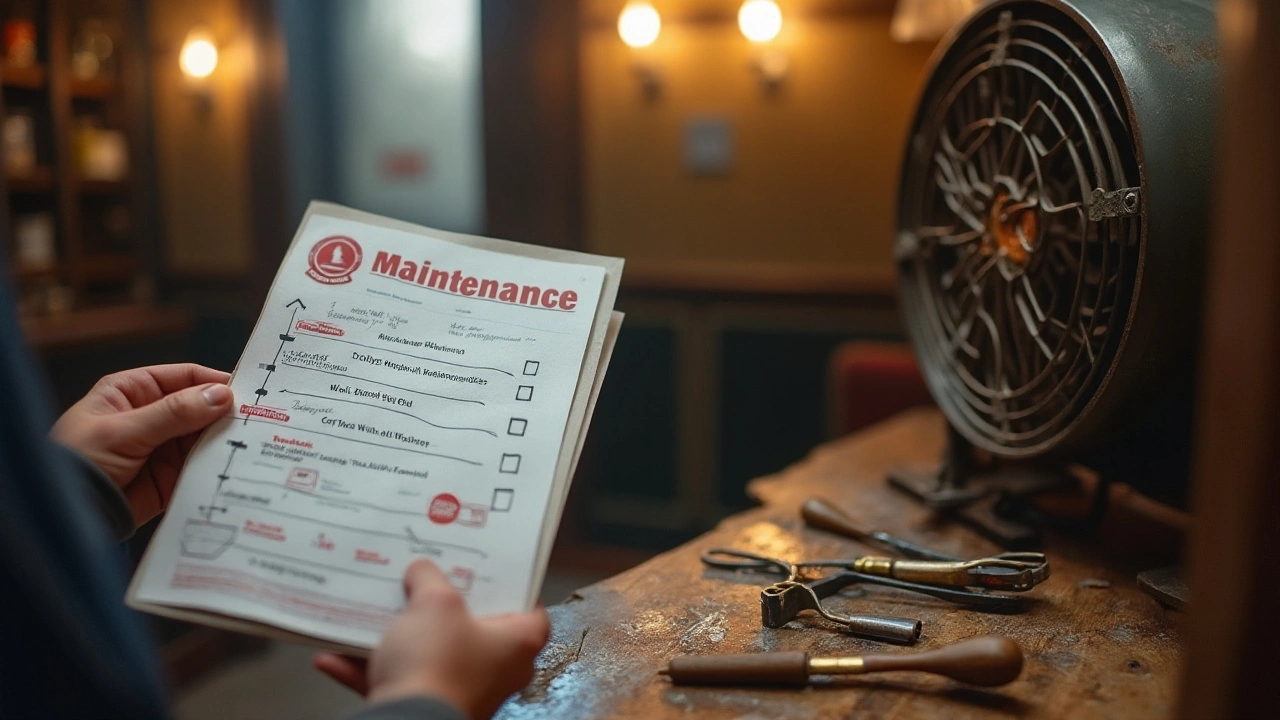
Simple DIY Fixes
When your exhaust fan starts acting up, it can be tempting to panic and jump straight to buying a new one. But hang on a second—before you reach for your wallet, know that many issues are often easy to fix with some basic tools and a bit of elbow grease. One of the most common problems people face is strange noises emanating from the fan. This can usually be traced back to loose parts or debris caught in the blades. To tackle this, first ensure that the power is turned off for safety. Then, gently remove the grill covering the fan using a screwdriver. Once you have clear access, inspect the blades for built-up dust or any foreign objects lodged in the mechanism.
It’s not uncommon for dust and gunk to gather, especially in bathroom exhaust fans that deal with high moisture levels. Cleaning the blades can often resolve issues related to reduced efficiency. Using a soft cloth or a vacuum cleaner attachment specifically designed for appliances, gently clean the blades. Re-attaching the grill and ensuring everything is secure can also stop the fan from rattling, restoring it to quiet operation.
Another issue is when the fan seems to struggle in removing humidity effectively. This is usually due to blocked vents. Locate the vent area that leads outside and check for obstructions like leaves or nests. Cleaning this out can vastly improve performance. There are times when the wiring could be the culprit. If the fan refuses to turn on, checking the fuse box might reveal a tripped switch. Re-adjusting it could be the quick fix you need. For those slightly more confident with electrical issues, examining the fan’s connections for any loose or burnt wires is another potential avenue, though it's always advised to exercise caution.
Common Tools and Materials
Before starting your DIY adventure, make sure you have a few basic items at your disposal. A screwdriver set is indispensable, allowing you to easily remove or tighten screws. A soft, lint-free cloth or an old toothbrush can help in cleaning delicate parts. If you come across any screws that need replacing, make sure the new ones are of the same size to avoid damaging the fan casing.
Lubricating oil can also come in handy for squeaky components. A small drop applied judiciously can make a world of difference. Keep a flashlight close by, especially if your fan is situated in a dimly-lit area or high ceiling. Sometimes, just having enough light to closely inspect components is enough to guide you toward resolving the problem effectively.
"Many exhaust fan issues are within the capacity of a homeowner to address," says Daniel Thompson, a veteran home repair specialist. "With a careful look and a steady hand, most problems can be resolved without professional intervention."
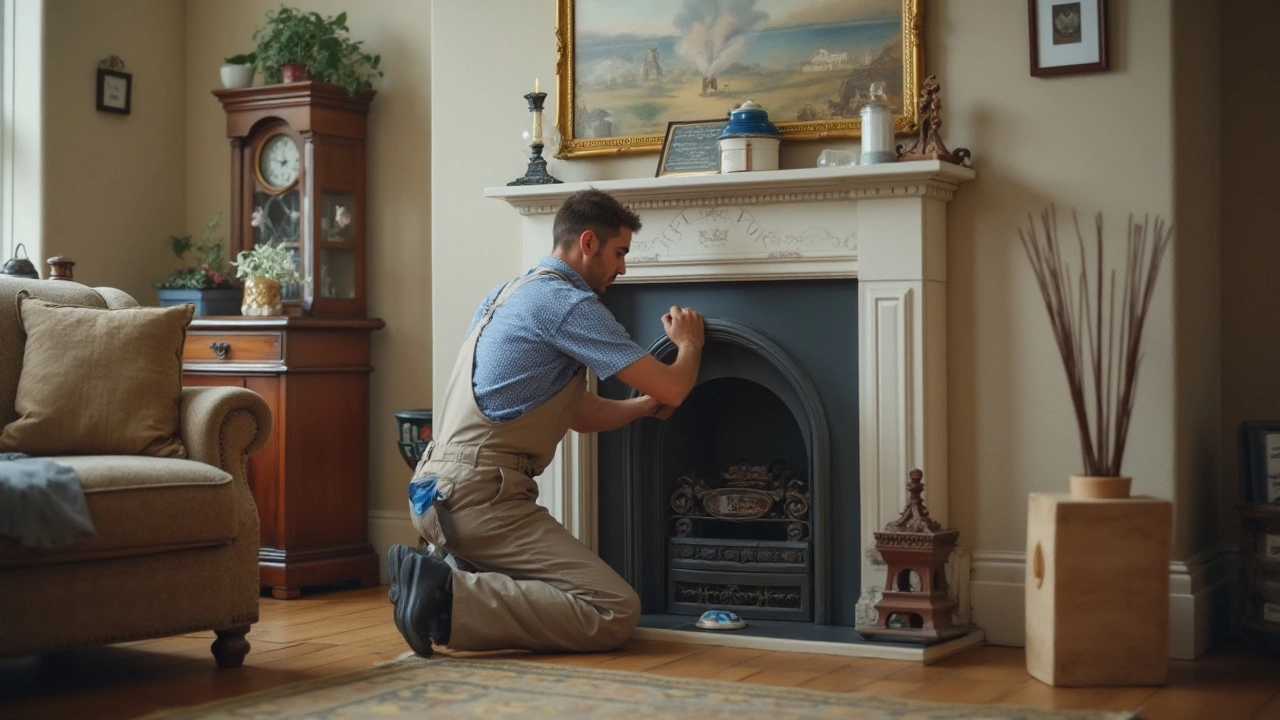
When to Call a Professional
There comes a time in every handyman's journey where knowing your limits can save you from further complications. When dealing with exhaust fan repair, certain situations make it clear that professional help is required. If you've noticed that your fan makes grinding noises that don't stop even after basic cleaning or lubricating, it's likely an internal mechanical issue. These noises often point to worn-out bearings or a motor that's on the brink of failure. Resolving such issues typically demands expertise, specific tools, and replacement parts that professionals are well-trained to handle.
It's also important to consider the wiring and electrical components involved. If your exhaust fan isn't turning on, and you've already checked the circuit and switches to no avail, the root of the issue might lie in faulty internal wiring. Handling electrical repairs without the right knowledge can be dangerous, both for you and your home. Getting a professional avoids the risk of electric shock and ensures that any replacements or repairs are carried out safely and effectively. Statistics show that electrical failures or malfunctions were responsible for 13% of home structure fires, highlighting the importance of addressing electrical issues with care.
"Hiring a professional can often cost less in the long run, as they not only provide a quick fix but also prevent future issues." — Home Improvement Magazine
An additional reason to consider professional help occurs when dealing with persistent ventilation problems, like excessive humidity or inability of the fan to clear unwanted smells efficiently even when functioning. A professional can assess whether the fan capacity matches the room size or layout and can suggest changes in the setup or recommend more suitable alternatives. They might also detect if there's a blockage or obstruction within the ventilation system itself that isn't visible to easy DIY methods. Overall, their expertise not only addresses the immediate issue but can improve the system’s efficiency moving forward.
Finally, continuous maintenance can also be something worth discussing with a professional. Finding someone who can periodically inspect and maintain your exhaust fan will extend its lifespan. They can offer advice on proper upkeep according to your model and frequency of use. This proactive approach can delay repairs, save money, and assure peace of mind. Identifying the right time to call in a professional strikes a balance between DIY efforts and recognizing the need for specialized intervention. Doing so helps maintain a safe, efficient home environment.

Maintenance Tips for Longevity
Maintaining an exhaust fan is crucial for ensuring it performs efficiently over the years. Regular maintenance not only extends its life but also saves you from unexpected repairs and replacements. One simple yet effective tip is to clean the fan blades regularly. Dust and dirt tend to accumulate over time, which can hamper the fan's performance and lead to a noisy operation. To clean it, first, ensure the fan is turned off and disconnected from any power source. Using a damp cloth with mild detergent, gently wipe each blade. In case there are hard-to-reach corners, a vacuum cleaner with a hose attachment can be an effective tool for sucking out hidden debris.
Another aspect often overlooked is the fan's motor. Keeping the motor oiled helps in reducing friction and preventing overheating, which can otherwise cause wear. Use a few drops of light oil for lubrication, typically twice a year is sufficient. It's essential to use the right type of oil, specific for electric motors, to prevent any damage or fire hazards. Additionally, inspect the vent cover periodically. Clogged vent covers restrict airflow, reducing the fan's ability to move air efficiently. Replace the cover if it appears damaged or too clogged for a thorough clean.
"An unmaintained exhaust fan can lose up to 40% of its efficiency in just a year," mentions John Doe, a well-known HVAC consultant.Routinely checking the electrical connections is another step in ensuring long-term reliability. Loose or corroded wires can not only cause the fan to stop working but also pose a significant fire risk. Tighten any loose connections and replace wires that look worn out. This task might occasionally require a professional if you are not comfortable handling electrical components. It's also a good practice to run the fan regularly, even if it's not required for ventilation. This activity prevents parts from seizing up and keeps the mechanics in good working order.
For those interested in a step-by-step schedule, here's a simple plan: weekly blade dusting, monthly cleaning of vent covers, bi-annual motor oiling, and an annual inspection of electrical components. If you keep up this routine, the exhaust fan should continue to serve you effectively for years, providing a fresh and comfortable environment in your home without the nuisance issues like weird noises or reduced airflow. Staying proactive with maintenance not only benefits your exhaust fan but also contributes to a healthier indoor atmosphere by ensuring that humidity and pollutants are quickly whisked away from your living spaces.
